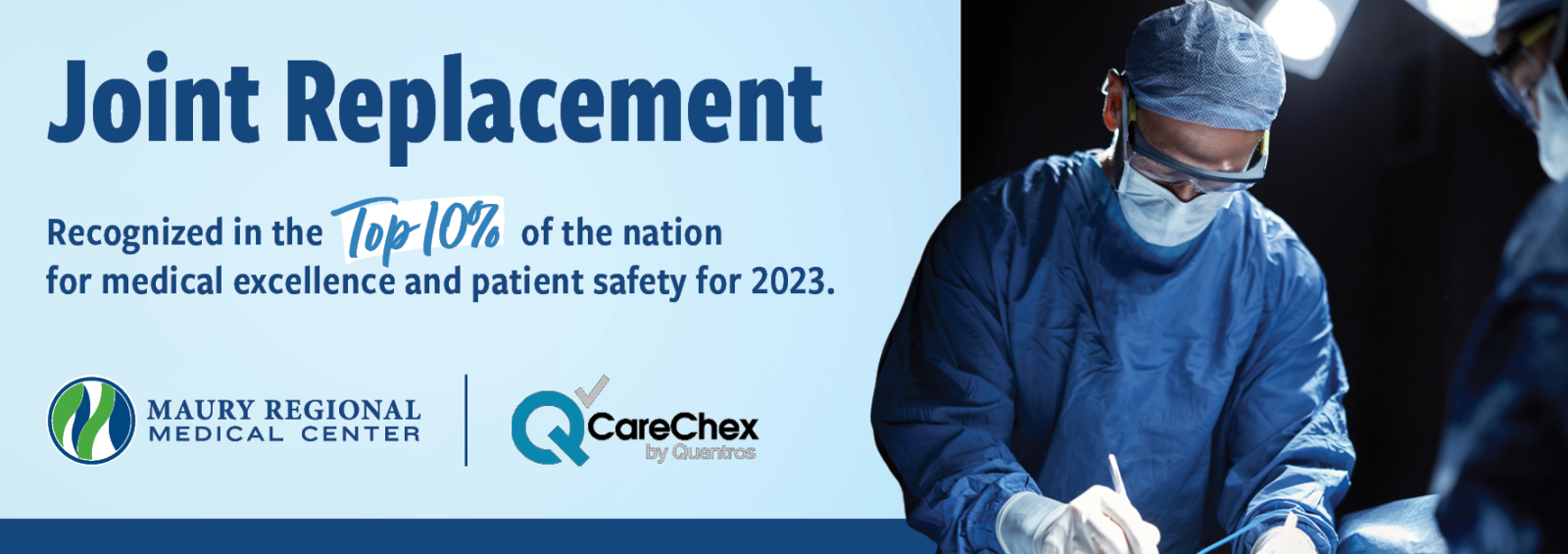
Joint Replacement
The skilled and experienced surgeons on our medical staff perform progressive joint replacement procedures for the knee, hip, shoulder, elbow and ankle. The number of joint replacements conducted at Maury Regional Medical Center continues to increase. Orthopedic surgery physicians on our medical staff evaluate patients to determine what procedure and device best meet the patient’s individual needs. Among the options available are:
- Total hip replacement (traditional, anterior approach and Mako robotic-arm assisted)
- Total and partial knee replacement (traditional and Mako robotic-arm assisted)
- Gender-specific knee replacement
- Total shoulder replacement
- Reverse total shoulder replacement
- Elbow replacement
- Ankle replacement
In 2023, Maury Regional Health's joint replacement program was ranked in the 10% in the nation for medical excellence and patient safety by CareChex®, an information service of Quantros, Inc.
orthopedic surgery physicians
- Jeffrey T. Adams, MD
- Randall L. Davidson Jr., MD
- Alton Lee Hunter Jr., MD
- Christopher M. Loftis, MD
- Scott W. McCall, MD
- Jonathan R. Pettit, MD
- Zachary K. Pharr, MD
- Erion Qamirani, MD, PhD
- W. Cason Shirley, MD
- Carson D. Strickland, MD
- Joseph Fredrick Wade, MD
- H. James Wiesman Jr., MD
Mako robotic surgery
In addition to traditional procedures, Maury Regional Medical Center also offers robotic-arm assisted total knee, partial knee and total hip replacements with Stryker’s Mako System.
Knee & hip replacement Education
Our goal is to ensure that you have the most successful outcome following joint replacement by providing you with important information about preparation for surgery, physical therapy and the recovery process. All patients scheduled for knee or hip replacement are required to complete pre-surgical education. Patients may choose whether to receive education in a classroom setting or via an online platform. For online pre-surgical education, click here.